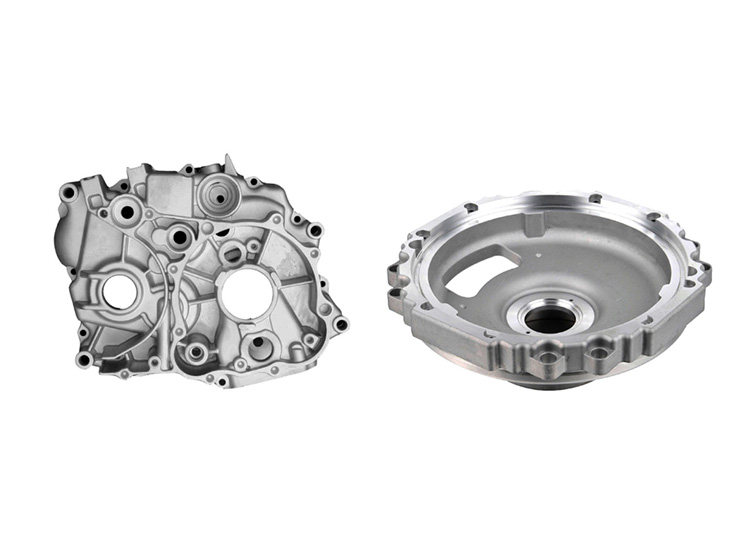Stahl Specialty Company for Beginners
Stahl Specialty Company for Beginners
Blog Article
Fascination About Stahl Specialty Company
Table of ContentsNot known Details About Stahl Specialty Company The Buzz on Stahl Specialty CompanyThe Greatest Guide To Stahl Specialty Company9 Simple Techniques For Stahl Specialty CompanySome Of Stahl Specialty Company
The subtle difference lies in the chemical material. Chemical Contrast of Cast Light weight aluminum Alloys Silicon promotes castability by minimizing the alloy's melting temperature level and improving fluidity during casting. It plays an essential role in allowing elaborate molds to be filled up precisely. In addition, silicon contributes to the alloy's toughness and put on resistance, making it beneficial in applications where sturdiness is critical, such as auto components and engine parts.It also boosts the machinability of the alloy, making it much easier to process right into completed products. By doing this, iron contributes to the overall workability of light weight aluminum alloys. Copper boosts electrical conductivity, making it useful in electrical applications. It additionally improves corrosion resistance and includes to the alloy's overall toughness.
Manganese adds to the strength of light weight aluminum alloys and boosts workability. Magnesium is a lightweight aspect that gives strength and effect resistance to light weight aluminum alloys.
It allows the production of light-weight parts with outstanding mechanical properties. Zinc improves the castability of light weight aluminum alloys and aids control the solidification process during casting. It boosts the alloy's strength and firmness. It is commonly located in applications where intricate shapes and great information are needed, such as attractive spreadings and particular automotive parts.
The Definitive Guide for Stahl Specialty Company
Since aluminum-silicon alloys have good casting homes, high gas homes, easy processes, and excellent deterioration resistance, aluminum-silicon alloys are most generally utilized in the die-casting industry in your home and abroad. At the exact same time, aluminum-silicon alloys are likewise reasonably very early and extensively acknowledged alloys developed and made use of in die-casting. After constant research and renovation, the majority of the current global mainstream aluminum-silicon alloys have been wrapped up and are nothing greater than A356, A360, A380, ADC12, B390, and A413.
The key thermal conductivity, tensile strength, yield toughness, and elongation vary. Amongst the above alloys, A356 has the highest thermal conductivity, and A380 and ADC12 have the cheapest.

All about Stahl Specialty Company
In precision spreading, 6063 is appropriate for applications where complex geometries and premium surface area finishes are paramount. Instances include telecommunication units, where the alloy's premium formability enables for streamlined and visually pleasing layouts while maintaining architectural integrity. Likewise, in the Lights Solutions industry, precision-cast 6063 elements develop stylish and reliable lighting fixtures that call for intricate shapes and excellent thermal performance.
(https://profile.hatena.ne.jp/stahlspecialc/)
It results in a better surface coating and better rust resistance in A360. Moreover, the A360 displays premium elongation, making it excellent for complex and thin-walled elements. In precision casting applications, A360 is appropriate for industries such as Consumer Electronic Devices, Telecommunication, and Power Devices. Foundry near me. Its boosted fluidness permits detailed, high-precision parts like smart device coverings and interaction tool real estates.

In accuracy navigate to this site casting, aluminum 413 radiates in the Customer Electronic Devices and Power Devices industries. This alloy's remarkable corrosion resistance makes it an exceptional selection for exterior applications, ensuring lasting, resilient items in the pointed out sectors.
A Biased View of Stahl Specialty Company
The light weight aluminum alloy you select will considerably affect both the casting procedure and the residential properties of the final item. Since of this, you must make your choice thoroughly and take an informed technique.
Identifying one of the most appropriate aluminum alloy for your application will certainly mean considering a broad selection of qualities. These relative alloy attributes follow the North American Pass Away Spreading Association's standards, and we've separated them into 2 categories. Foundry near me. The initial category addresses alloy features that affect the production process. The 2nd covers characteristics affecting the residential or commercial properties of the last item.
The alloy you choose for die spreading straight influences several facets of the casting procedure, like how very easy the alloy is to collaborate with and if it is vulnerable to casting flaws. Warm splitting, likewise referred to as solidification splitting, is a regular die spreading issue for light weight aluminum alloys that can cause internal or surface-level splits or cracks.
What Does Stahl Specialty Company Mean?
Particular light weight aluminum alloys are a lot more prone to hot breaking than others, and your selection should consider this. An additional typical flaw found in the die casting of light weight aluminum is die soldering, which is when the cast sticks to the die wall surfaces and makes ejection tough. It can damage both the cast and the die, so you need to try to find alloys with high anti-soldering residential or commercial properties.
Rust resistance, which is already a remarkable quality of aluminum, can differ considerably from alloy to alloy and is an essential particular to consider relying on the environmental conditions your item will be revealed to. Wear resistance is an additional residential property typically sought in aluminum items and can differentiate some alloys.
Report this page